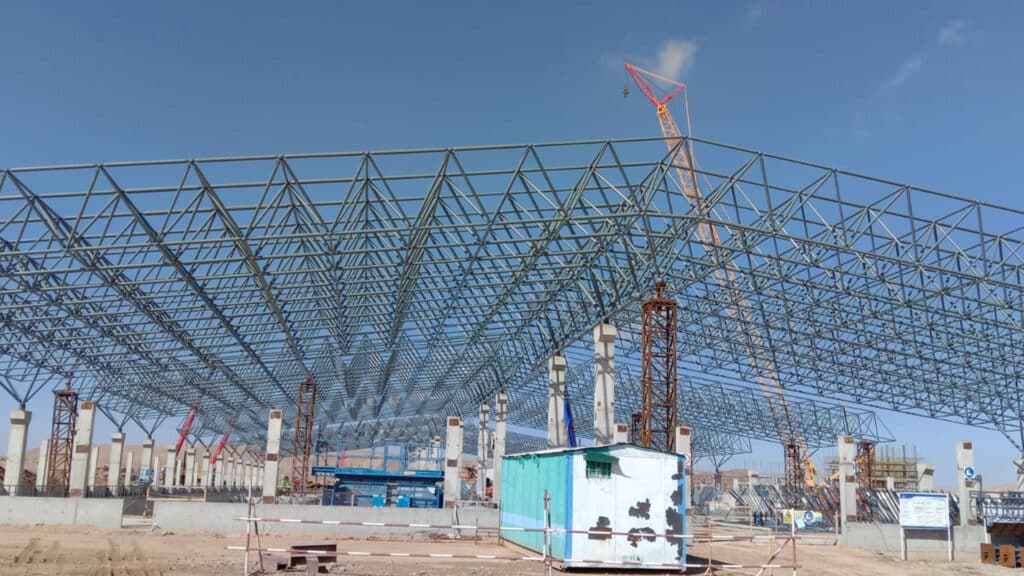Russian EuroChem sets timeline for launch of fertilizer factory in Kazakhstan

EuroChem Karatau, a subsidiary of the Russian EuroChem, plans to launch a fertilizer manufacturing facility in the Zhambyl region in February 2027.
According to a statement published by the company, the approximate timeline for the project is 24 months. Construction is expected to start in the first quarter (March) of 2025 and finish in the first quarter (February) of 2027.
Once completed, the plant will operate until 2052-2053, when its equipment will have to be replaced. The fertilizer manufacturing plant will consist of a sulfuric acid plant (SAP Plant) with a capacity of 800,000 tons per year, a potassium sulfate production facility (SOP Plant) with a capacity of 260,000 tons per year, a calcium hydrogen phosphate plant (DCP Plant) with a capacity of 200,000 tons per year, and a calcium chloride facility (CaCl2 Plant) with a capacity of 130,000 tons per year.
The plant is expected to be launched in two stages. The first stage, which is the SOP Plant, should be commissioned at the end of 2025, while the second phase — fertilizer production — will be launched in 2027.
About half of the 800,000 tons of sulfuric acid will be supplied to Kazatomprom, as the company uses sulfuric acid for solvent extraction of uranium. The fertilizer plant will use Kazakhstan-produced gas for its production process. According to the CEO of EuroChem Karatau Igor Georgiadi, the production facility will need 130 million cubic meters of gas annually if it operates at full capacity.
The future plant will be built 14 kilometers southwest of Zhanatas, the center of the Sarysu district of the Zhambyl region. Once commissioned, it will produce 33 tons of potassium sulfate, 16.25 tons of calcium chloride and 25 tons of calcium hydrogen phosphate per hour. Moreover, the plant will also produce 249.2 tons of 15% calcium chloride brine (CaCl2) per hour and 45.1 tons of gypsum (CaSO4) per hour as byproducts.
For the production of potassium sulfate, the company will build 28 specially designed furnaces using phosphate ore from the Kok-John (Araltobe and Kesiktobe sections) and Gimmelfarb fields, controlled by EuroChem Fertilizers (part of EuroChem), as raw materials. EuroChem Karatau produces ground rock phosphate on its own, while potassium chloride (218,400 tons), limestone (230,000 tons) and block sulfur (275,000 tons) will be sourced from third-party producers.
To facilitate production, EuroChem Karatau is going to reconstruct several railways at the Rudnichnaya railway station in the Zhambyl region, 18 kilometers southwest of Zhanatas.
EuroChem is one of the largest global producers of fertilizers, with production capacities in three key groups of fertilizers: phosphoreal, potassium and nitrogen-based chemical fertilizers. Over the past ten years, the company has invested more than $11 billion in the development of its production facilities. Key assets of EuroChem are located in Russia.
The company was established in 2001 by Russian businessman Andrey Melnichenko. He used to be the key beneficiary of the company until he was added to the European sanctions list in March 2022. According to Forbes, Melnichenko and his family are ranked 108th in the global ranking of the richest people (and seventh in the Russian ranking) with a fortune of $17.7 billion.

